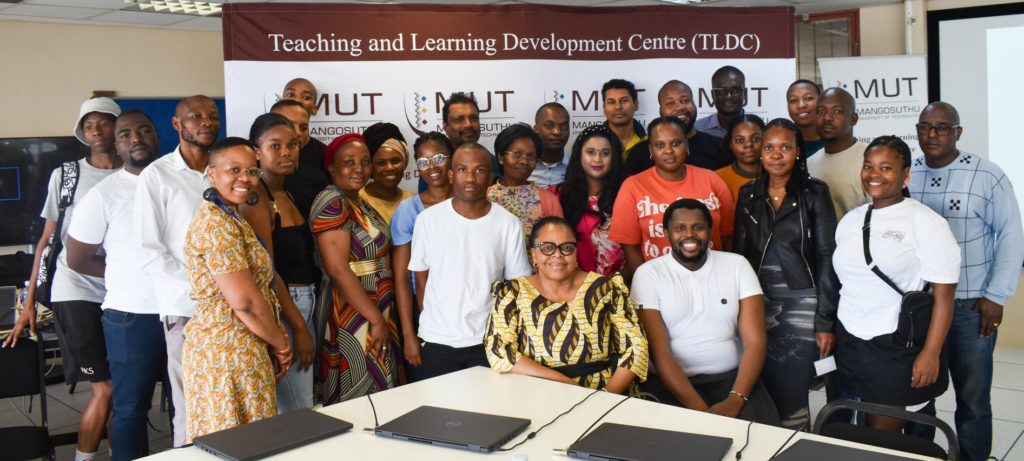
On the second day of three-day bilingual-multilingual workshops for faculties that took place on 7, 10, and 11 October 2024 on campus, the Academic Language Literacy Unit (ALLU) brought in an expert from the Eastern Cape to impress upon some members of the MUT staff the importance of different languages to ensure better understanding and show respect for the various cultures. Sinoyolo Nokutywa, a Manager: Languages and Indigenous Knowledge Systems: Transformation and Languages at Walter Sisulu University, gave a lecture: Dynamics of Language Transformation in the Contemporary Higher Education of South Africa, to members of staff from different departments.
Nokutywa started his talk by saying that promoting languages and introducing change was uncomfortable and that there was a need for a shift in mindset. “You need to have a radical approach,” he said. Without mentioning it, his lecture delved into the politics of language and how the language was used to further imperialism and colonialism before democracy. Now, the people whose languages were either taken away or were shown to be lesser than English must shake off that belief and embrace the fact that their languages are not only equal to those that are said to be better but also a way of life for them. Nokutywa said it was alarming that after 30 years of democracy, South Africa still had such a situation. He said languages needed to be developed to adapt to modern times.
Nokutywa said it was not true that certain subjects could not be taught in Indigenous South African languages. He advised MUT staff to work with local Maths teachers and find out how they teach the subject in IsiZulu. “You need to decolonize the teaching of Maths,” he said. Nokutywa said there was proof that students performed well when taught in their mother tongue. He said the students should be involved in creating terms and new words.
Nokutywa said that contrary to what was regarded as a norm in South Africa, Indigenous languages have minimal use and cannot be used in commercial engagements, countries outside of Africa use some African languages to convey messages. He said they use IsiZulu in China, and there would be an interpreter.
ALLU Deputy Director Dr Buyi Makhanya said that change in the higher education sector was a must and would be part of the sector’s identity. “From 2025, we are implementing the language policy. In 2025, we shall start using sign language,” said Dr Makhanya. She added that a sign language expert will be present next year during the graduation ceremonies.
